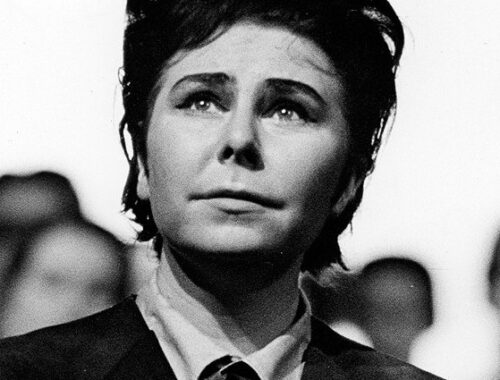The Stationmaster, Tristan Bates Theatre
 Aria Entertainment’s From Page to Stage platform for new writing in musical theatre is another of those life-lines which refreshes the parts that the West End so rarely reaches – and to see a fledgling musical like The Stationmaster find its feet and roar for the first time on a stage, in a theatre, is immensly gratifying. This brainchild of composer/lyricist Tim Connor was ripe for the picking and the idea of adapting and musicalising Odon von Hovarth’s moral fable Judgement Day was an inspired one. This is a tale rich in emotional fibre and blissfully free of predictability. You have absolutely no idea where its moral dilemma might take us.
Aria Entertainment’s From Page to Stage platform for new writing in musical theatre is another of those life-lines which refreshes the parts that the West End so rarely reaches – and to see a fledgling musical like The Stationmaster find its feet and roar for the first time on a stage, in a theatre, is immensly gratifying. This brainchild of composer/lyricist Tim Connor was ripe for the picking and the idea of adapting and musicalising Odon von Hovarth’s moral fable Judgement Day was an inspired one. This is a tale rich in emotional fibre and blissfully free of predictability. You have absolutely no idea where its moral dilemma might take us.
One cause for general rejoicing is the Englishness of the adaptation and the fact that Connor’s score pointedly avoids the generic all-purpose musical theatre melodising and mines a deeper vein of earthiness and folksiness that gives it a place and an identity. It is tightly dramatised (Book Susannah Pearse) and skilfully staged against all the odds of this postage stamp space by Bronagh Lagan. Connor’s clever use of motivic ideas gives the whole a satisfying coherence and symmetry and my only major criticism – and one which can surely be worked upon for future incarnations – is that the broadness of the early part of the show is perhaps too charcicatured and too sitcom jolly and makes the sudden plummet into darkness harder to swallow. I can see that the tone is designed to wrong-foot us but something more naturalistic might pay dividends later on.
The title role of Thomas was written for Nigel Richards and his stage-filling presence and booming vocal prowess onece again makes one wonder why he isn’t top of every casting director’s wish-list. Character actors who can sing like him are rare as hen’s teeth. You can read his truthfulness in every moment. An extraordinarily intense performance, too, from Jessica Sherman as Catherine, the wife, whose lucidity – from a moral and emotional perspective – so excitingly gives the lie to the “community” who have branded her “odd”, even “insane”. It’s the Peter Grimes syndrome and indeed the whole piece assumes something of its ethos in the second act.
At a modest upright piano music director Caroline Humphris gives the score – and certainly that second act – a positively orchestral heft.
You May Also Like

GRAMOPHONE Review: Shostakovich Symphony No. 11 ‘The Year 1905’ – BBC Philharmonic Orchestra/Storgårds
17/06/2020
GRAMOPHONE: From Where I Sit – July 2021
27/07/2021